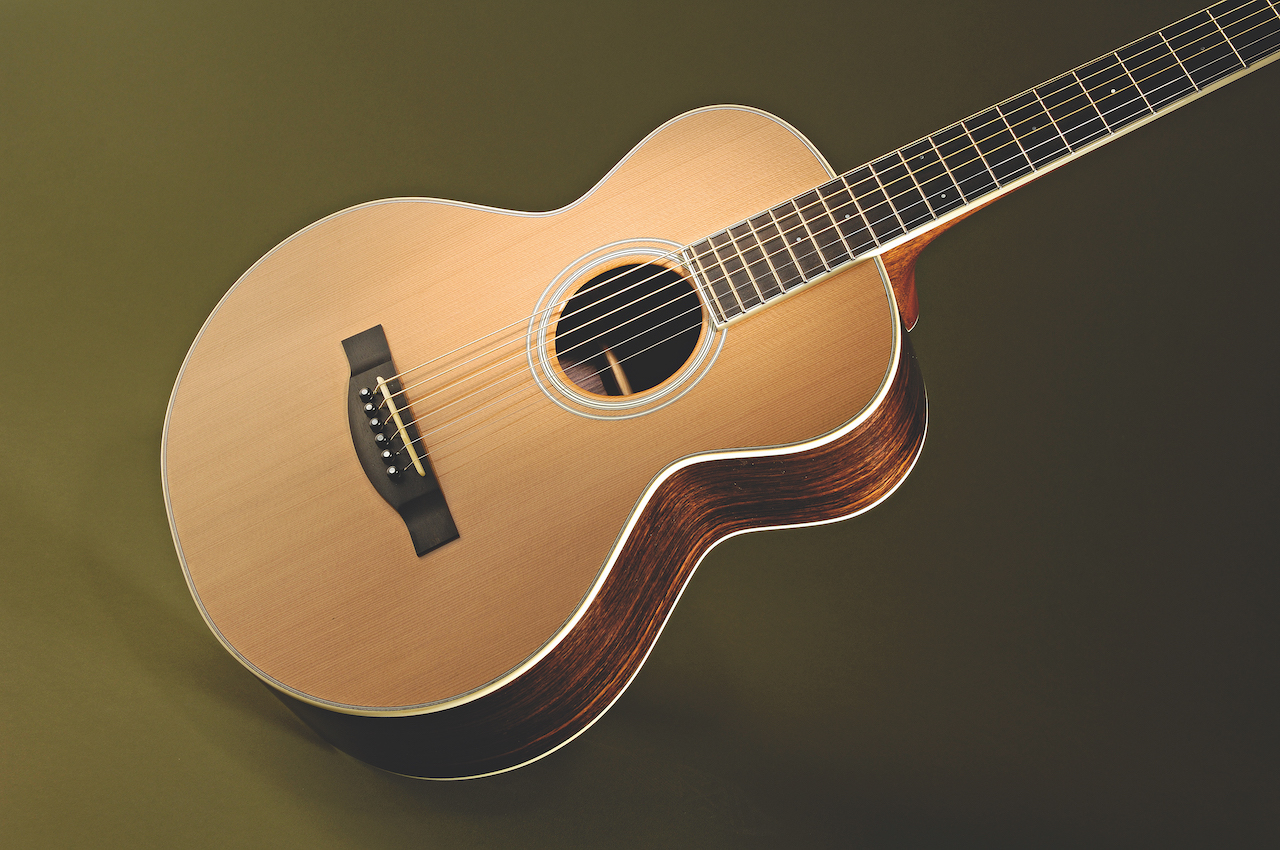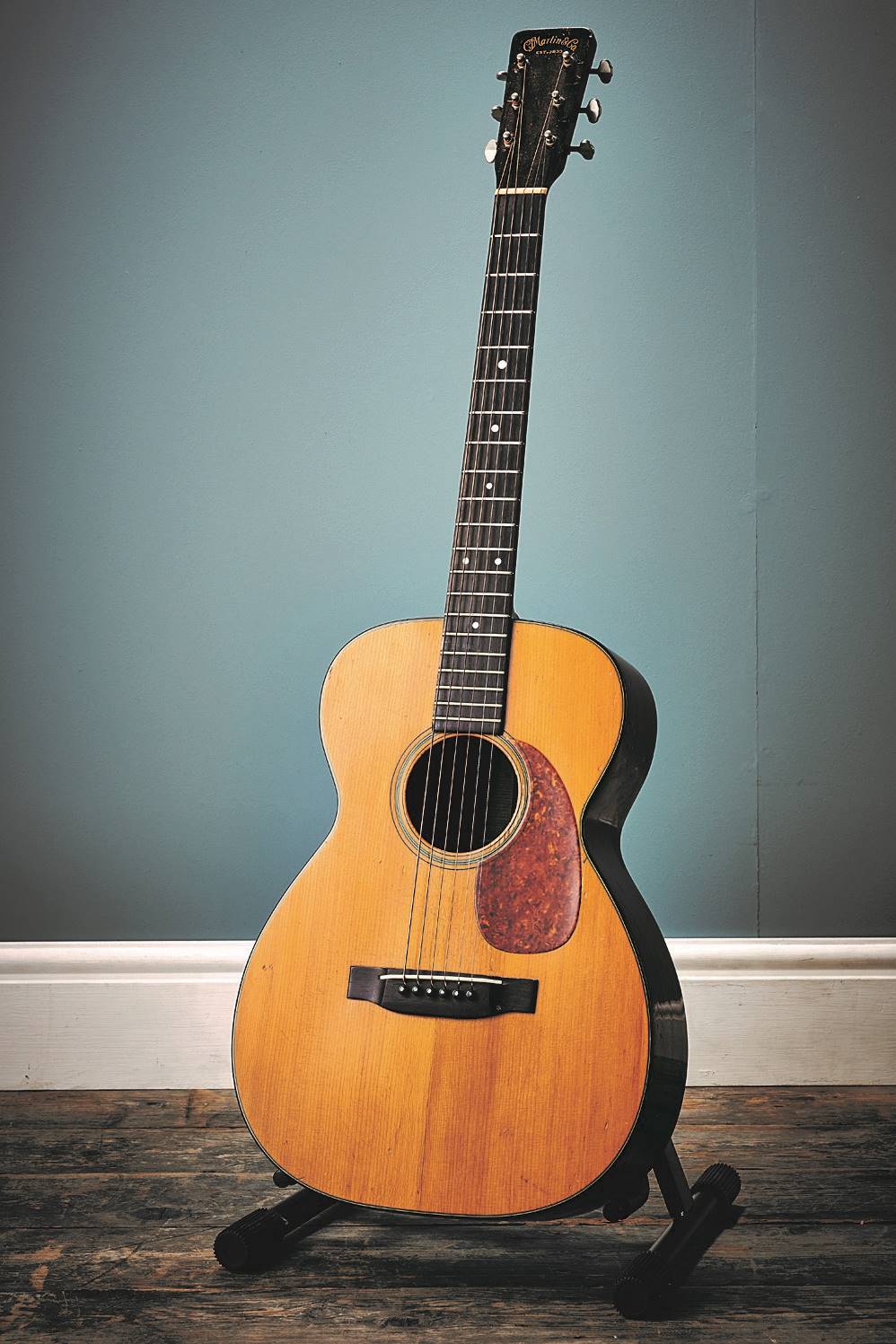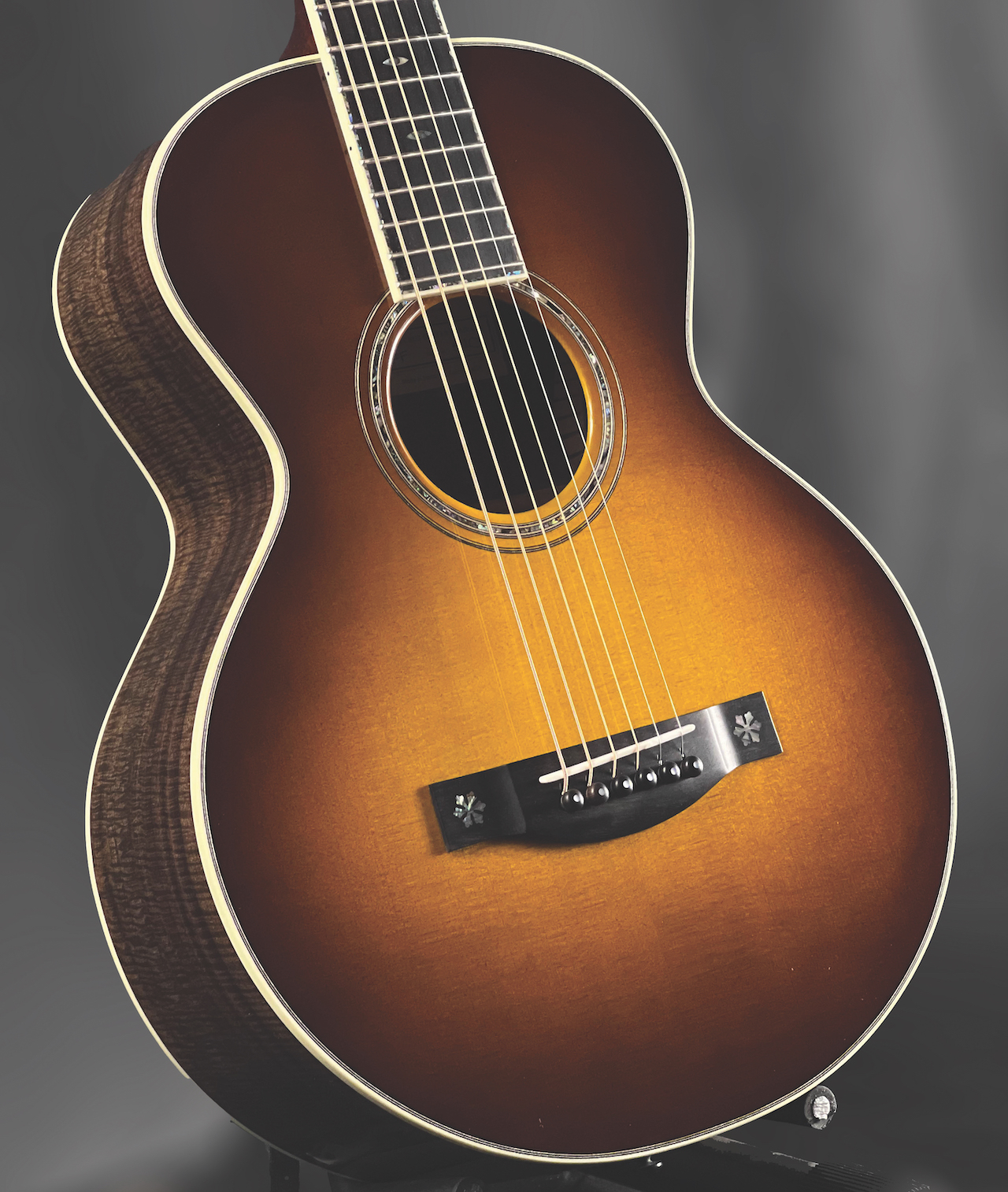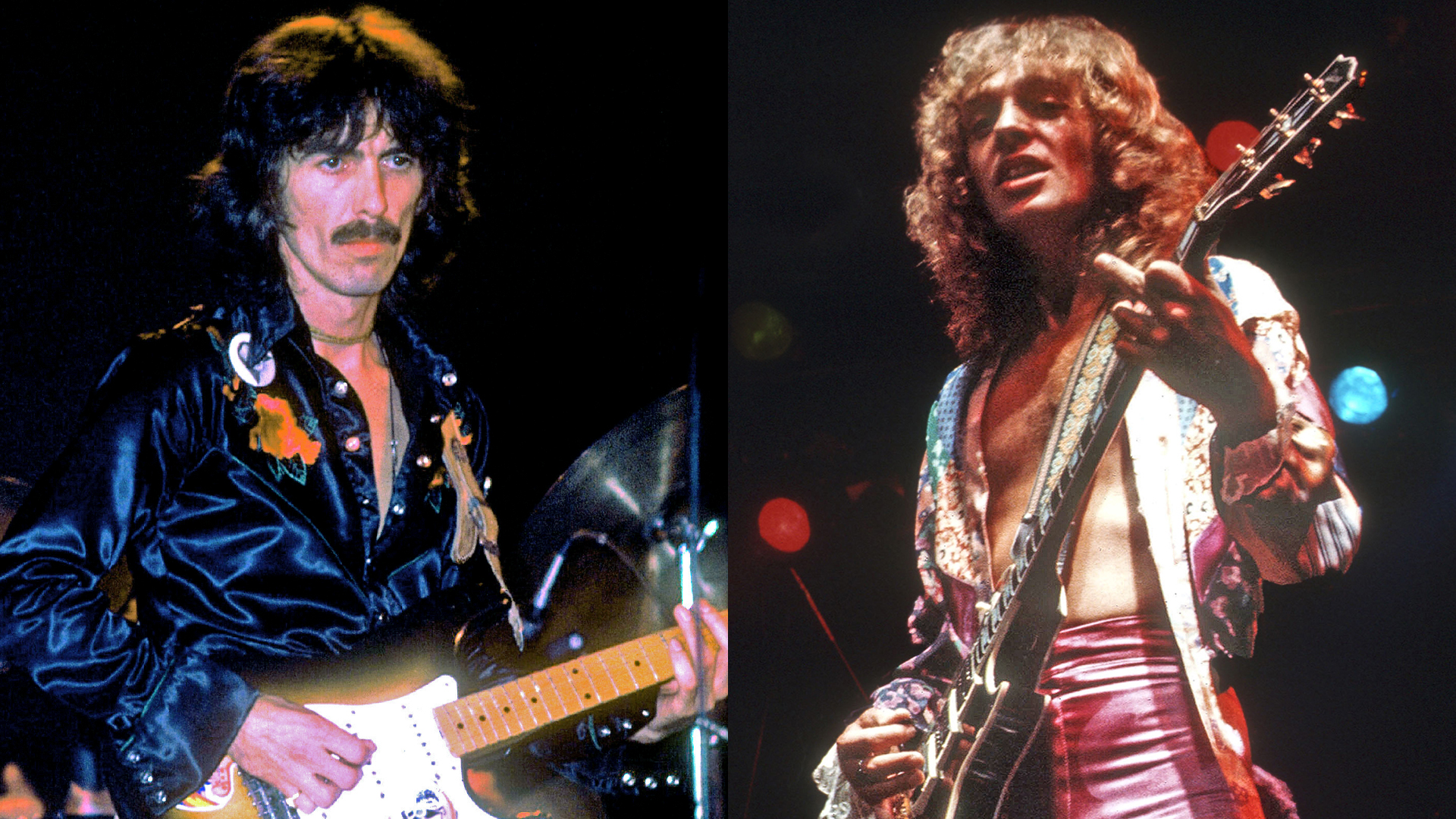"It was all there in the parlor guitar: that depth and inspirational tone. The only reason guitars got bigger was to compete with barking dogs and juggling children in vaudeville…" The big history of small acoustics
Richard Hoover unravels the history and mystery of parlor guitars

After I spoke with Richard Hoover for our feature about the new Vault Series from Santa Cruz Guitars, he went particularly deep on a few pet subjects, including parlor guitars, which are generally smaller and narrower than a Martin single 0. What got us rolling was a discussion of the FireFly, the first Santa Cruz model that truly spun my head around.
Circa 2008, one came into Guitar Player headquarters for review, and it earned a unanimous, enthusiastic Editors’ Pick. We were all perplexed. How could such a full sound come from such a small acoustic? Apparently, Hoover had been waiting a long time to prove his point on this subject close to his heart, and he’s still on his mission to educate the masses about the glory of a great parlor guitar. We’ll let Hoover take it from here.
Small used to be big
“People have a bias against parlor guitars,” Hoover opines. “They think a guitar that size is a toy. They say, ‘That’s really cute. I love small guitars, but they’re so mellow,’ meaning they just don’t sound very good. Well, that size guitar was the epitome of the luthier art going back a century and a half. And if they had a need to make big guitars, they would’ve, but they didn’t. They just had the need to improve upon the quality of sound — all the crucial characteristics you’d want — with millennia to practice.
"It was all there in the parlor guitar: the sonority, depth and inspirational tone. The only reason guitars got bigger was to compete with barking dogs and juggling children in vaudeville. That required something louder and more brash. It never improved the sonic quality. It just made it louder. But go back to the heyday of the parlor guitar, and why would you make it louder? Everybody was right here in the parlor. And even in performance, it was in a context where people could hear it. The guitar didn’t need to be bigger.

How we got here
“The reason people have that biased perception now is because they’ve been misled. When they play a parlor-sized guitar from way back that was handmade by some of the same companies that are still around today, people are astounded at how good they sound, because their experience had been the reproductions that the larger companies have made of those instruments over, say, the last 40 years. Those are made out of woods that come from the same machine, whether it’s a dreadnought, an OM or whatever. They’re way heavy built, so of course they sound limited and dull. I had to wait for the right time to show people.

Super fly
“Eventually, the touring guitarist with the Phantom of the Opera orchestra approached me, saying, ‘I need a guitar I can travel with, but when I get to the gig, it’s got to be a real guitar with quality acoustic sound. I don’t want something with a fold-up neck, or a little guitar that has to be plugged in.’ I said, ‘Great, here’s the chance to do our prototype.’ I knew how the old guitars were made, with great consideration for sizing wood dimensionally in proportion to this little instrument. I saw an opening in the marketplace where we could position the FireFly, and we’ve been making players happy with it ever since.”
All the latest guitar news, interviews, lessons, reviews, deals and more, direct to your inbox!
Jimmy Leslie is the former editor of Gig magazine and has more than 20 years of experience writing stories and coordinating GP Presents events for Guitar Player including the past decade acting as Frets acoustic editor. He’s worked with myriad guitar greats spanning generations and styles including Carlos Santana, Jack White, Samantha Fish, Leo Kottke, Tommy Emmanuel, Kaki King and Julian Lage. Jimmy has a side hustle serving as soundtrack sensei at the cruising lifestyle publication Latitudes and Attitudes. See Leslie’s many Guitar Player- and Frets-related videos on his YouTube channel, dig his Allman Brothers tribute at allmondbrothers.com, and check out his acoustic/electric modern classic rock artistry at at spirithustler.com. Visit the hub of his many adventures at jimmyleslie.com
